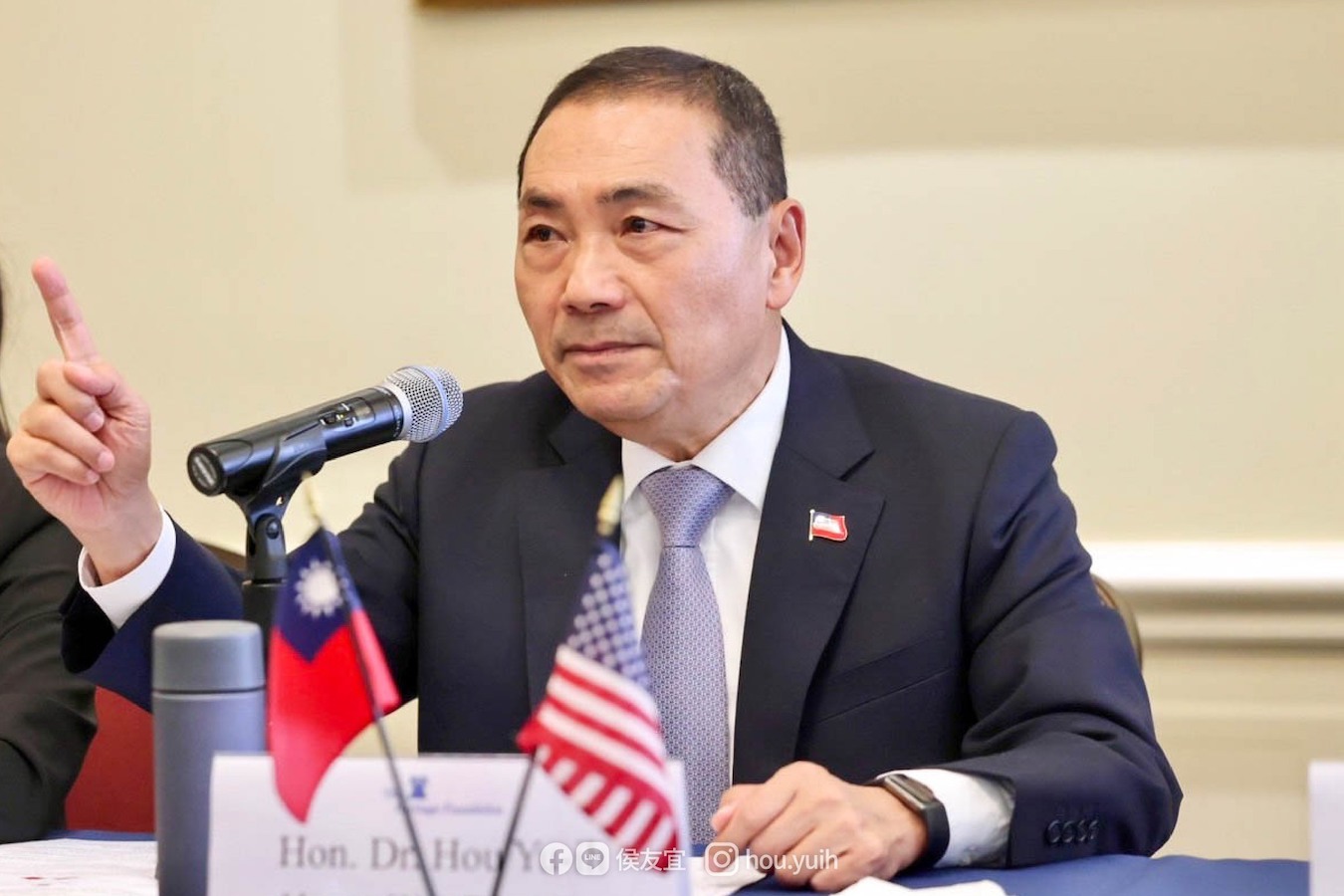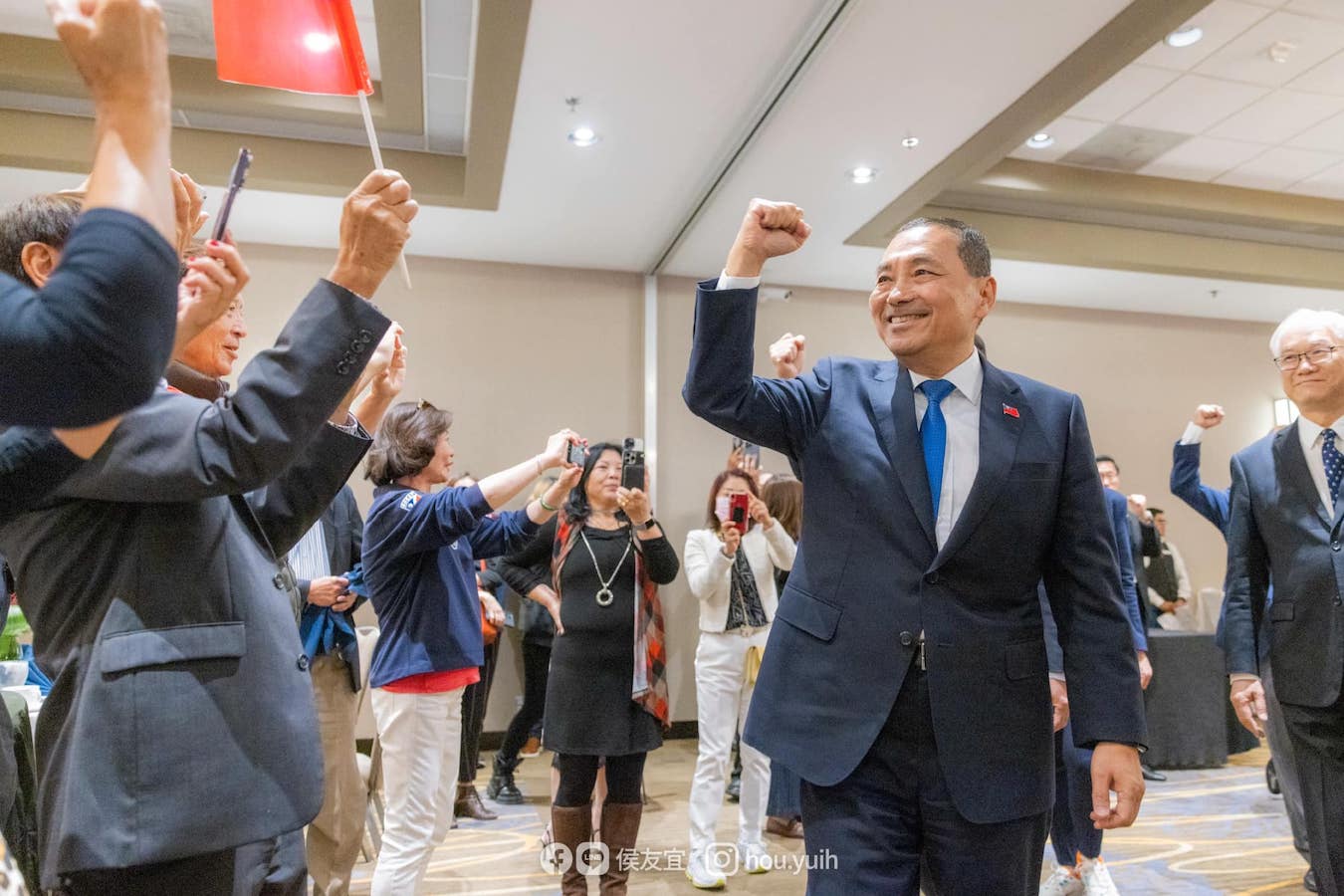by Brian Hioe
語言:
English
Photo Credit: Hou You-yi/Facebook
KMT PRESIDENTIAL CANDIDATE Hou You-yi recently traveled to the US. Taiwanese presidential candidates traditionally travel to the US ahead of elections. This is not only to meet with US government officials and conduct meetings, but to meet with wealthy members of the Taiwanese diaspora that live in the US, so as to solicit campaign funds. TPP presidential candidate Ko visited the US in April, while independent presidential candidate Terry Gou visited both in April and in late July. Ko has announced another trip for October. DPP presidential candidate William Lai visited the US in September.
Hou traveled to New York, New Jersey, Washington, and San Francisco in the course of his eight-day trip. Hou met with American Institute in Taiwan chair Laura Rosenberger, New York City mayor Eric Adams, and delegations from the Brookings Institution and the Heritage Foundation, apart from meeting with Taiwanese groups.
This was significantly more stops than DPP presidential candidate William Lai, who only visited New York and San Francisco during his September trip. However, Lai’s trip was of greater sensitivity, seeing as he is the DPP presidential candidate, and China was likely to respond to his trip with a display of military force.
 Hou You-yi while in the US. Photo credit: Hou You-yi/Facebook
Hou You-yi while in the US. Photo credit: Hou You-yi/Facebook
At the same time, Hou’s trip was largely overshadowed in Taiwanese media reporting by Terry Gou’s announcement of his vice presidential candidate, Tammy Lai. Lai subsequently became the object of a media firestorm, seeing as Gou seems to have chosen her primarily on the basis of her role as a presidential candidate in the influential political drama, Wave Makers, and Lai’s qualifications later came under scrutiny. Some suspected that Gou scheduled the timing of his announcement to occur on the same day that Hou set off for the US, as a way of sabotaging him and distracting from coverage of his trip.
Nevertheless, what is notable about Hou’s visit was to what extent he sought to dial back his cross-strait stances during the trip. Hou called on the US to be more attentive to the geopolitical outlook of the Taiwan Straits and expressed support for “friend-shoring” of critical electronics supply chains to avoid risks from the integral place that China occupies in global supply chains.
Indeed, during his US trip, Hou published an op-ed in Foreign Affairs. In the op-ed, Hou again expressed support for friend-shoring, while promising to establish an All-Out Defense Mobilization Council under the executive branch of government for future contingencies, and to develop early warning measures for Chinese grey-zone activity. Hou promised to strengthen ties with the US, Japan, Australia, and other allies, to strengthen efforts at “friend-shoring,” and asked that the US support Taiwan’s participation in trade blocs as the Comprehensive and Progressive Agreement for Trans-Pacific Partnership, the Indo-Pacific Economic Framework for Prosperity, and international bodies as the World Health Organization and International Civil Aviation Organization.
 Photo credit: Hou You-yi/Facebook
Photo credit: Hou You-yi/Facebook
Otherwise, Hou emphasized support for the 1992 Consensus. But, for the most part, Hou’s comments strike a strange tone at a time when the KMT has otherwise embraced a political strategy that casts doubt on the US’s reliability in wartime, such as questioning the potential dangers of sales of Volcano landmines from the US to Taiwan or establishing munitions stockpiles in Taiwan. To this extent, Hou calls for the reviving of the controversial CSSTA, a trade agreement that would have allowed for Chinese investment in Taiwan’s service sector industry. The CSSTA provoked backlash in 2014 in the form of the Sunflower Movement, one of the more significant social movement uprisings in Taiwanese history. Likewise, even though Hou has stated plans to travel to Japan, the KMT has historically been antagonistic towards Japan because of the legacy of the Sino-Japanese War, and at present, the KMT has sought to attack Japan over its recent nuclear wastewater discharge.
With the exception of energy policy, in which Hou expressed support for nuclear energy, Hou’s policies in his Foreign Affairs op-ed sounded similar to the Tsai administration. This reflects to what extent the Tsai administration’s discourse regarding cross-strait politics has become the consensus view in Taiwan, that at least when trying to come off as less pro-China in the face of the US, Hou seems to largely draw from its stances. Yet this also reflects how the Hou campaign faces challenges, in that it cannot embrace an outright pro-unification stance that would alienate the public, but while seeking to differentiate itself from the DPP, it has no original rhetoric of its own. Instead, then, the KMT mimics the DPP’s rhetoric while trying to paint the DPP as, in fact, secretly pro-independence.

